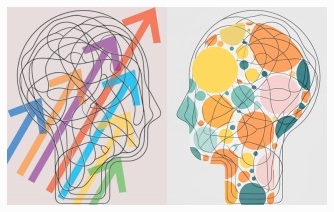 Minor annoyances can drain you more than you realize. They don’t vanish after the moment passes; they linger, filling every bit of mental space you allow them. The irritation itself is brief, but the endless reruns in your head are what exhaust you. You spend hours rehearsing imaginary arguments, and the cost is far greater than the incident itself.
Minor annoyances can drain you more than you realize. They don’t vanish after the moment passes; they linger, filling every bit of mental space you allow them. The irritation itself is brief, but the endless reruns in your head are what exhaust you. You spend hours rehearsing imaginary arguments, and the cost is far greater than the incident itself.
I call this the curse of the small. Every day you face irritations: traffic jams, bad service, a coworker stealing credit, a partner stacking the dishwasher in a way that offends your sense of order. If you don’t stop them early, they grow. They fester until they dominate your mood and distort your perspective. Your peace of mind and your productivity depend entirely on how you respond.
Think about it: when the mind is occupied with greater labors, the small things lose their sting. Yet as life grows easier, the threshold for irritation falls. In the absence of real threats, even a slow Wi-Fi signal is treated as if it were a crisis.
You need circuit breakers to recognize the triggers and stop the spiral. The most effective one I’ve seen is the 5-5-5 Rule. Ask yourself: Will this matter in 5 days? Will this matter in 5 weeks? Will this matter in 5 months? If the answer is no, don’t spend more than 5 minutes on it. This rule forces perspective and prevents minor frustrations from hijacking your day.
Richard Carlson’s influential 1996 bestseller Don’t Sweat The Small Stuff… And It’s All Small Stuff makes the same point. You don’t need to reinvent yourself to deal with anger or angst. You need perspective. Step back and you see that most annoyances are too small to deserve your energy.
Idea for Impact: The goal isn’t to eliminate annoyances. The goal is to build a mind too big for them to fill. When you let go, you reclaim your peace, your focus, and your joy.
The little annoyances will persist. Your response to them need not.

 Modern life tempts us toward simple ideals—peace, joy, freedom—but wisdom lies in reimagining these not as escapes from discomfort, but as quiet, sustained negotiations with the
Modern life tempts us toward simple ideals—peace, joy, freedom—but wisdom lies in reimagining these not as escapes from discomfort, but as quiet, sustained negotiations with the  Hustle culture promotes the idea that ambition is demonstrated through exhaustion, making sacrifices in well-being appear necessary for success. Society has
Hustle culture promotes the idea that ambition is demonstrated through exhaustion, making sacrifices in well-being appear necessary for success. Society has  Life is not a cradle of comfort but a crucible of experience. To be conscious is to be vulnerable—to injury, to loss, to the slow erosion of certainty. Suffering is not a glitch in the system; it is the system. And yet, the modern mind, coddled by convenience and narcotized by distraction, recoils from this fact as if it were an indecency rather than a reality.
Life is not a cradle of comfort but a crucible of experience. To be conscious is to be vulnerable—to injury, to loss, to the slow erosion of certainty. Suffering is not a glitch in the system; it is the system. And yet, the modern mind, coddled by convenience and narcotized by distraction, recoils from this fact as if it were an indecency rather than a reality..jpg)
 We tend to see
We tend to see  A thing can feel bad and be right.
A thing can feel bad and be right. There’s a peculiar cruelty in the well-meant, the kind that cloaks harm in sentiment and justifies injury with declarations of virtue.
There’s a peculiar cruelty in the well-meant, the kind that cloaks harm in sentiment and justifies injury with declarations of virtue..jpg)
 At its core, the book pushes a blunt idea:
At its core, the book pushes a blunt idea: